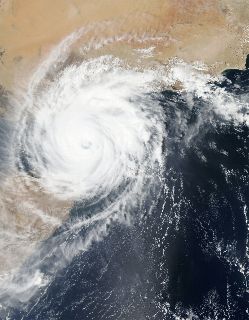The Eleventh Circuit Court of Appeals has overturned a district court and ruled that an expert witness is not required to prove hurricane damage in Georgia.
The Damage to the Church
In March 2016, Southern Mutual Southern Mutual Church Insurance Company issued an insurance policy to Greater Hall Temple Church of God in Brunswick, Georgia. The policy covered “direct physical loss to covered property” if the loss is “caused by a covered peril.” The policy did not cover losses caused by water or loss to the interior of buildings caused by rain, unless the rain enters through an opening made by a “specified peril.” The policy defined specified perils to include windstorms.
In October 2016, Hurricane Matthew hit Georgia. Following the hurricane, the roof of the Greater Hall Temple Church of God in Brunswick, Georgia was damaged. Greater Hall submitted a claim for $15 million in damages with its insurer, Southern Mutual.
Southern Mutual retained an independent field adjuster, Alan Taylor, to inspect the damages. Taylor determined that the damage to the church was not caused by wind; it was caused by pre-existing structural issues. Southern Mutual denied the claim.
District Court
Greater Hall filed a lawsuit against Southern Mutual in district court, arguing that Southern Mutual had violated the terms of the insurance agreement for failing to pay for its claims.
Greater Hall retained three experts to testify on its behalf: John Kern, Shawn Brown, and Alfred Teston. The court refused to allow each of these witnesses to present expert testimony. One proposed expert was a civil engineer who had little experience with the type of metal roof that had been installed on the church. Another proposed expert had put in a bid to repair the roof damage, but had little knowledge about the roof’s prior condition and no experience in determining the causes of roof damage. The third expert was a contractor who had installed the roof, but the church did not disclose the subject of his testimony until after the discovery deadline.
Southern Mutual presented experts who testified that the water damage to the interior of the church was caused by “improper flashing” that diverted rainfall through the building’s HVAC system. They also presented evidence that the church’s roof had leaked prior to the hurricane.
Southern Mutual filed a motion for summary judgment and the district court granted it. Greater Hall appealed.
Eleventh Circuit
On appeal, the Eleventh Circuit agreed with the district court’s decision not to admit the proposed expert testimony of Kern and Brown because neither had the requisite experience or had used a sufficiently reliable methodology to formulate their opinions. The court of appeals also agreed that the district court had not erred by excluding Teston’s expert testimony for untimeliness.
However, the Eleventh Circuit disagreed with the district court’s decision to grant summary judgment in the insurer’s favor. The district court had granted summary judgment because “proving causation requires expert testimony,” all of Greater Hall’s expert testimony had been excluded, and Greater Hall could not rebut Southern Mutual’s expert report that suggested the damage to the building was caused by poor workmanship.
The Eleventh Circuit ruled that, under Georgia law, expert testimony is not necessarily required to prove causation in an insurance contract — a plaintiff may satisfy its burden with lay testimony. Accordingly, the court ruled that Greater Hall’s case survived summary judgment because it was possible for a reasonable jury to find in its favor.




